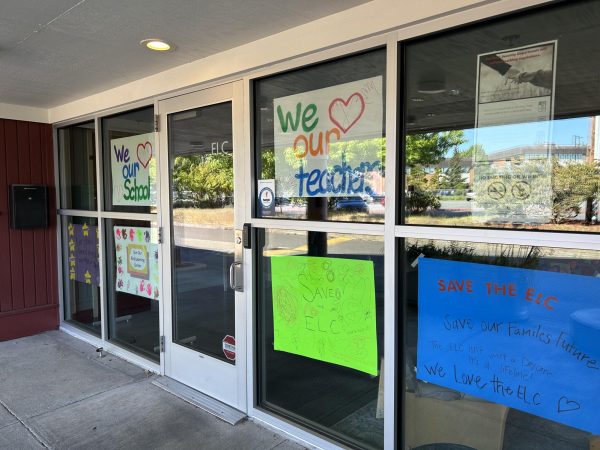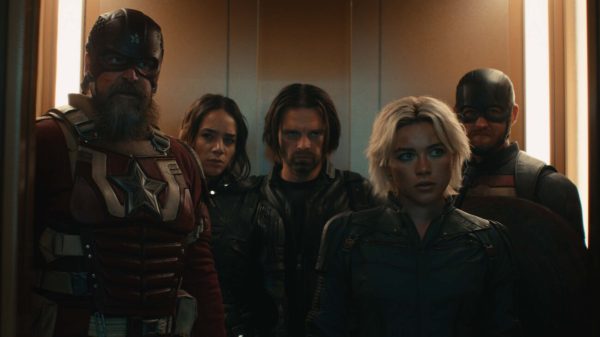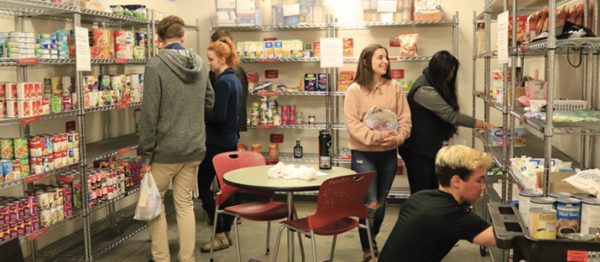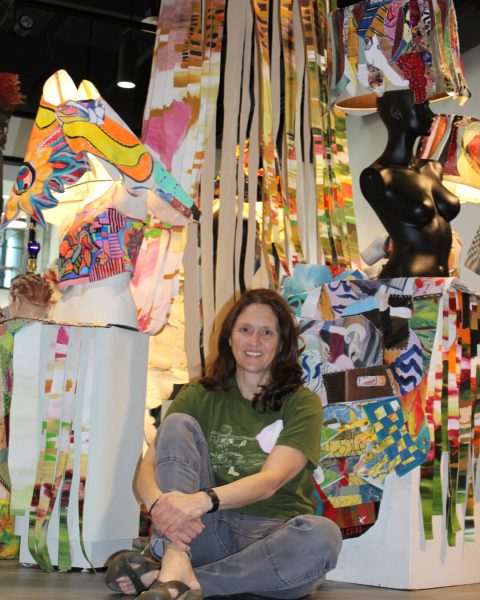How Did We Get Here: Transportation to EvCC
EvCC students discuss their transportation methods.
It’s Monday morning at 8:30, the sky is covered in a light layer of clouds as nine EvCC students step off the Northbound 201 to Smokey Point, before quickly rushing across the street and up Tower Street to get to their morning classes.
Classes at EvCC can start as early as 8 a.m. and at 7:30 a.m. students have already flocked to the doors by multiple means of transportation, including busses, their own cars, and if distance and weather is reasonable enough, riding their bikes to campus.
Traveling to Everett as much as five days a week, EvCC students are used to road hazards, construction and any other factors that may attribute to their morning commute. “My average [drive] time here is about 40 to 45 minutes” said Levi Wagner, an EvCC student. “I often hit morning traffic, not too much traffic on the return trip.”
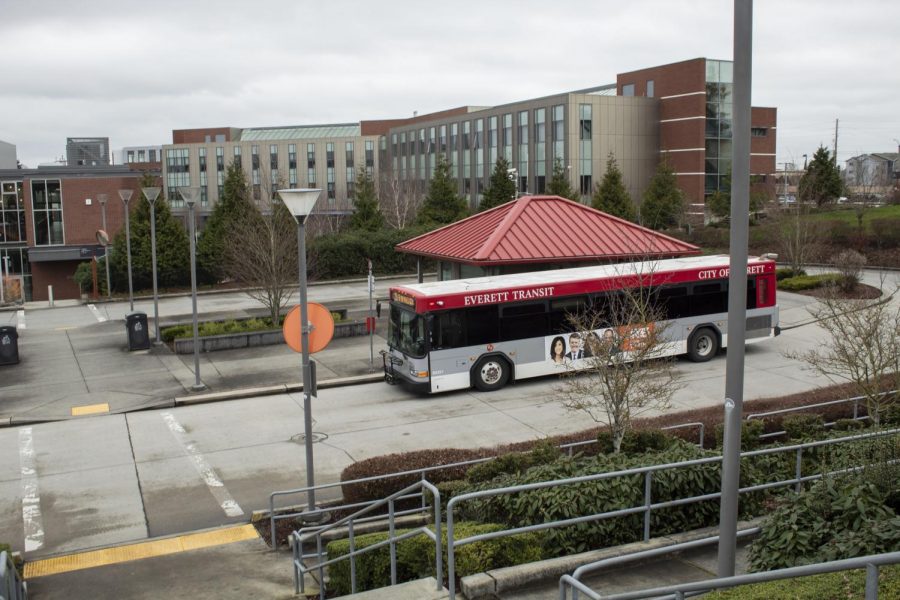
The bus terminal at EvCC is located next to the Walt Price Fitness Center. EvCC busses arrive once every fifteen minutes and run well past the end of evening classes.
Cost wise, Wagner looks to approximately spend 30 bucks twice a week on fill ups for his commute, adding up to about 240 dollars each month. To save a little on costs Wagner looks for free parking around Everett, and walks 5 minutes to campus to attend class.
The “upside” as Wagner states when speaking of common road hazards is that he doesn’t have too much trouble with driving conditions due to the fact that he drives an “old, beat-up truck with 4-wheel drive.”
At the idea of taking a bus to school Wagner shakes his head, “[I] don’t live close enough to take advantage of city’s transportation.” Wagner clarified that taking a bus wasn’t a viable option, and that the bus schedule was difficult to memorize.
Briahna Kroger, another EvCC student agrees and feels nervous about having a set time and having restrictions, along with making bus connections.
Her drive time is about 20-30 minutes, the max commute being about 40 minutes when I-5 is jammed costing her about $35 dollars a week for a quarter tank to full tank. Not wanting to rely on free parking, Kroger purchased EvCC’s parking pass for an extra $50.
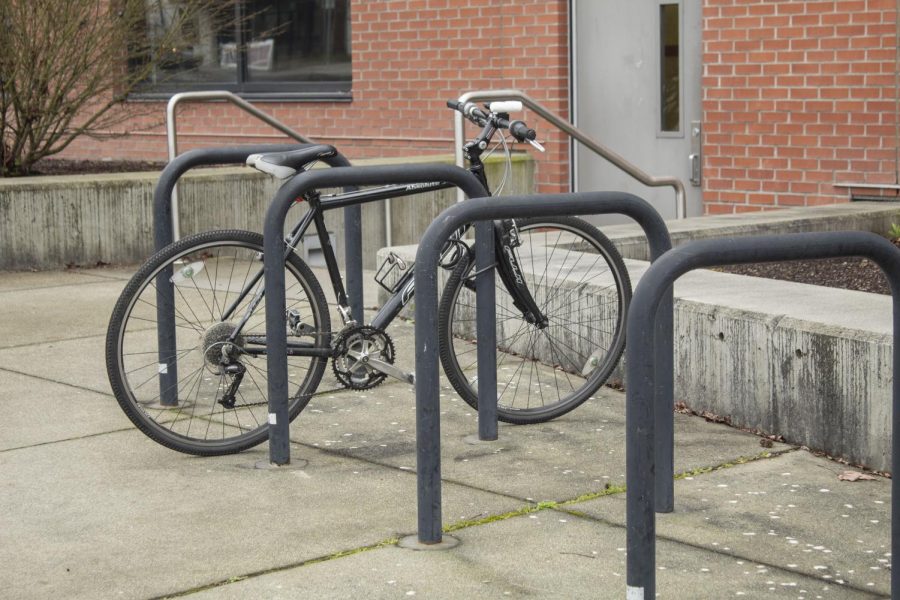
Bicycles are a mode of transportation often used for college students who do not have their own vehicle. EvCC offers access to their bike rack station for a $25 refundable fee, as long as the key is returned.
On the opposite side is Rafael Alvarez, an EvCC student who relies on Everett Transit to get to class on time, as he has been doing for nearly 4 years. His average commute can take up to 45 minutes to one hour. His main reasoning being not having a car, making the bus his easiest and cheapest option at $2 a ride.
“It’s kinda annoying [to have to] plan your schedule around the bus schedule.” He explains, “I usually have to take afternoon classes.”
EvCC busses arrive once every fifteen minutes and run well past the end of evening classes. “Breakdowns happen about once a month,” Alvarez said, explaining how the bus would shut down or reroute routes during snow.
Bus passes are available for students who commute to school, costing 50 dollars each quarter for passes for all Everett Transit and Community Transit busses. “Well worth the money”, one EvCC student said as she stood waiting for her bus. Just her commute costs about 42 dollars a month with her own Orca card.
“During the spring, I used to ride my bike.” said Alvarez. EvCC offers access to their bike rack station for a $25 refundable fee, as long as the key is returned.
Price-wise, buses are the preferred method of transportation, while for convenience automobiles take the cake. There are many different options for students to commute to their classes at any time of day and offers affordable passes to help those in need.
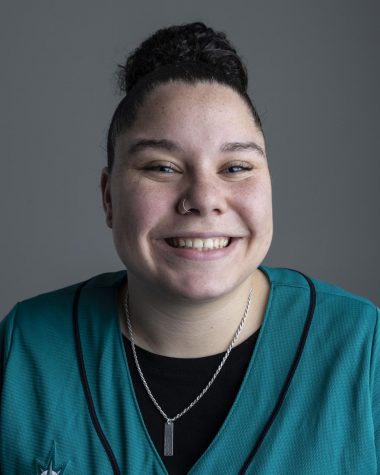
Where does The Clipper fit into your long-term goals?
It helps me understand more of what direction I want to go with journalism or communications....


